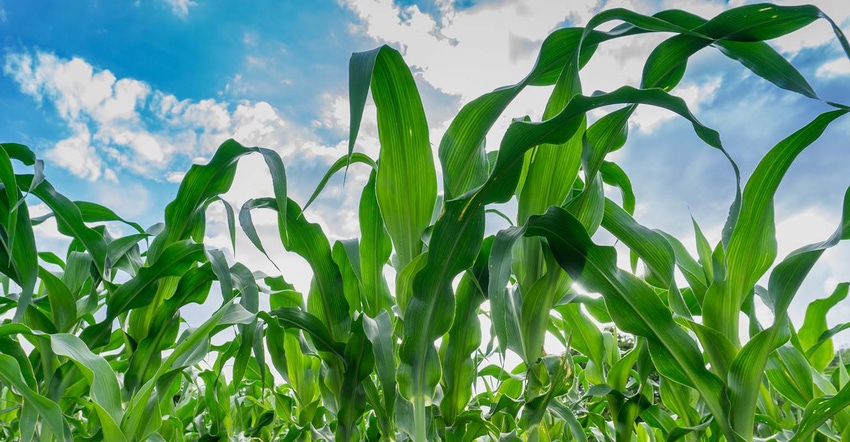
by Marvin G. Perez
An alarming increase in global temperatures from Earth’s changing climate could bring an unexpected benefit for U.S. farmers who grow corn, the nation’s biggest crop.
While hotter weather generally threatens to sap crops of needed moisture, data from Midwest corn-growing states suggests the region will see warmer summers with more humidity, which would aid plant growth and yields, according to a study by Michigan State University researchers Bruno Basso and Joe Ritchie.
“The amount of water vapor in the air is gradually increasing,” Basso, the lead author of the study and a distinguished professor in the Department of Earth and Environmental Sciences, said in a statement. If the trend of the past half century extends for another 50 years, farmers in the Midwest may see bigger yields, he said.
The data showed daily low temperatures in warm summer months are rising but that high temperatures are cooling or unchanged, which means more humidity and less energy used in evaporation from the soil or leaves.
“Think of the energy balance like a bank account,” Basso said. “There are additions and subtractions. The energy coming from the sun is a known, measured quantity that adds to the bank account. The primary subtraction is liquid water from the crop, and soil using the solar energy to convert the water to vapor.”
The researchers used the energy balance to calculate the “evaporative water loss” for 2017, when corn yields were a record 542 bushels per acre. They found the loss was the same as it was for lower yielding crops because the energy balance was about the same.
“The energy for evaporation is changing little, so if the number of days the crop grows and uses water is the same now and, in the future, the evaporation loss will be the same and slightly less,” Basso said. “In fact, the warmer temperatures allow the use of longer season hybrids that will make for even greater yield possibilities.”
To contact the reporter on this story: Marvin G. Perez in New York at [email protected]
To contact the editors responsible for this story: Simon Casey at [email protected]
Steve Stroth
© 2018 Bloomberg L.P
About the Author(s)
You May Also Like




